Is There A Christmas Pickle On Your Tree This Year?
Is there a Christmas pickle on your tree this year? Learn the interesting origins of this unique holiday tradition.
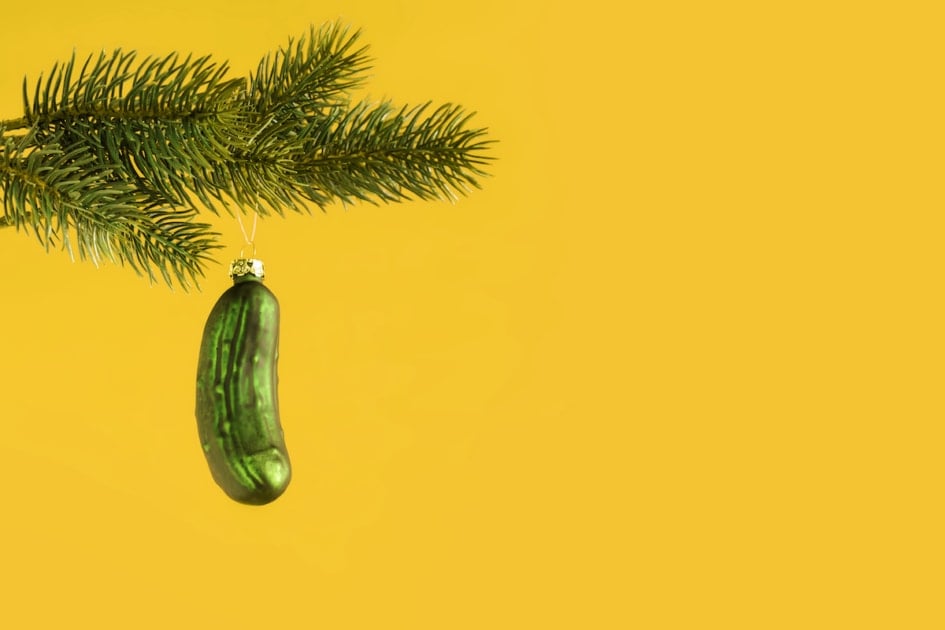
Every family has heirloom holiday ornaments with special meanings and stories—grandma’s vintage ornaments, baby’s first Christmas; newlywed’s Christmas, and other milestones (how about surviving the 2020 quarantine and toilet paper shortages?). But have you heard about hanging a little glass pickle on the Christmas tree? It’s a popular tradition for many, while others have never heard of it. What’s it all about, and how did this unique tradition begin?
The Many Origins of the Christmas Pickle
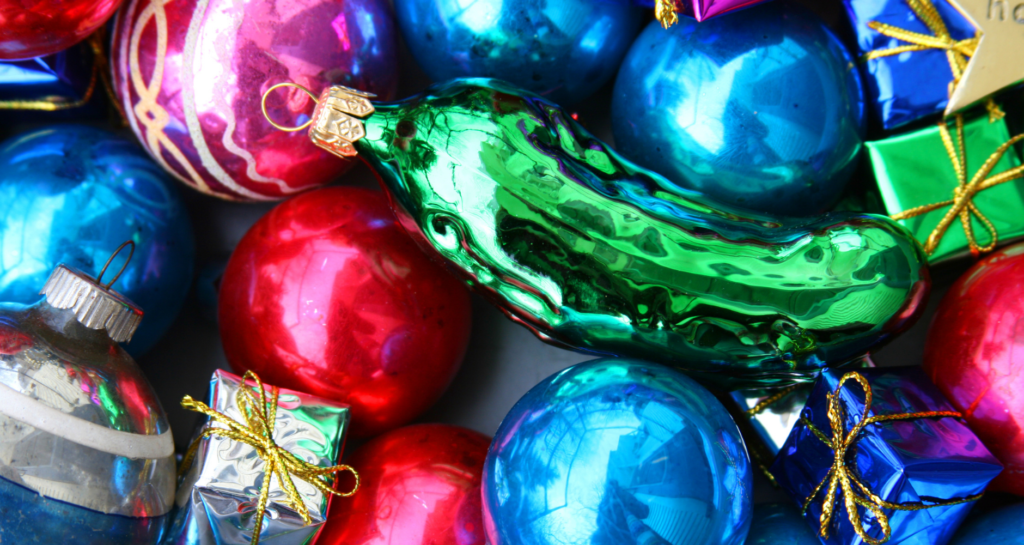
In the 1880s and 1890s, Woolworth stores began selling glass holiday ornaments imported from Germany, including ornaments featuring fruits and vegetables. At first, it was claimed that the tradition of the Christmas pickle, or weihnachtsgurke, was a German one, but few Germans have ever heard of this ornament having any special place or traditions associated with it. It is likely that the “tradition” was a clever invention by an enterprising salesman with the hopes that a charming tale would lead to more sales of these unusual ornaments.
Christmas Pickle Traditions and Legends
Though its origins are fictional, there are several variations of what the Christmas pickle has come to mean either in legend or as a modern holiday tradition. In many households, a pickle ornament is hidden among the boughs of the Christmas tree, and the first child to find it may receive an extra gift or a special treat, or may have the honor of passing out the gifts on Christmas morning. This rewards a child’s powers of observation and helps encourage patience as gifts are passed out to everyone.
A Civil War Soldier’s Tale
One Christmas pickle legend is that a German-born soldier during the American Civil War was a prisoner of war in Georgia, on the verge of starvation and death on Christmas Eve, when he begged a guard for one last pickle. The guard gave him one, and that pickle gave the soldier the strength to persevere. After the war, when the soldier returned home, he began hanging a pickle on his tree every Christmas season. This tale helps to remind everyone to be grateful for even small favors.
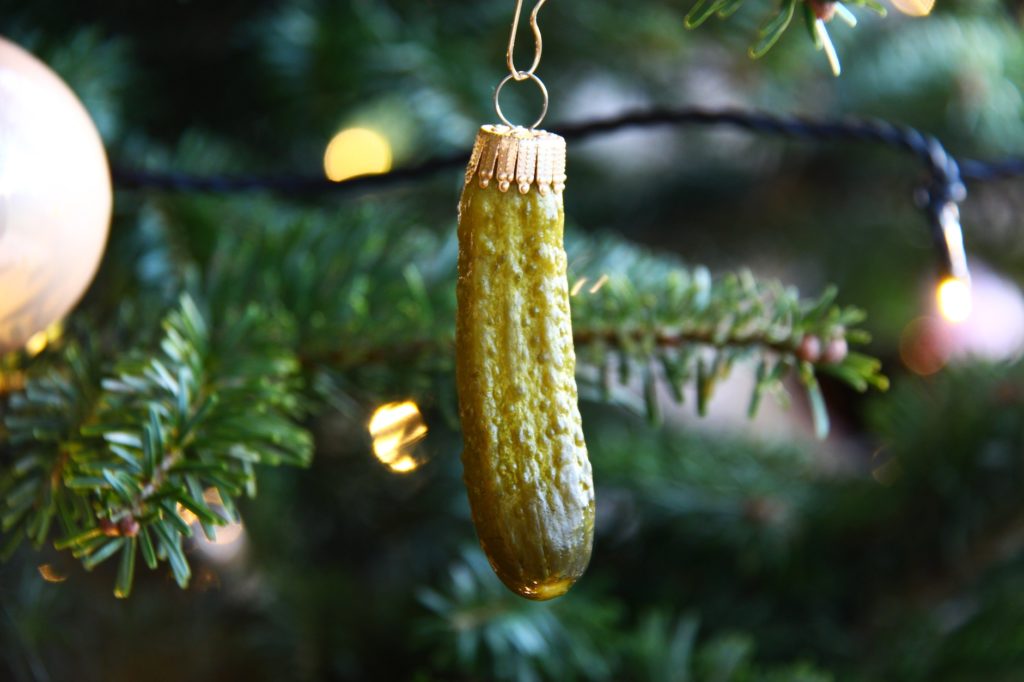
Small Treasures
A similar gratitude theme is in connecting the Christmas pickle to the Spreewald region of Germany, southeast of Berlin, where cucumbers are grown and pickled. This region is renowned for its specialty gherkins, but before the pickles were so prized, the legend goes that residents were so poor that they would only have pickles to hang on their Christmas trees. When they emigrated to the New World, they brought their pickle ornaments with them.
A More Sinister Legend
A scarier tale involving Christmas pickles is the legend that two Spanish boys were imprisoned in a pickle barrel by an evil innkeeper, but were found and rescued by St. Nicholas. This legend is a variation that has little to do with Christmas and involves a preserved meat barrel rather than a pickle barrel, but can be used as a warning tale for young children and to encourage belief in the forgiveness of Santa Claus.
Finally, the most basic meaning of the Christmas pickle is simply that it brings good fortune to anyone who finds it on the tree, ensuring good blessings through the holiday season and in the year to come.
Christmas Pickle Capital of the World
The Christmas pickle, regardless of its meaning, has become one of the most popular ornaments on holiday trees throughout the United States. For a number of years, Berrien Springs, Michigan—a small village in the southwestern corner of the state that was largely settled by German immigrants and produces pickles to this day—declared itself the Christmas Pickle Capital of the World and held an annual holiday festival featuring pickles. During the 1990s and until 2003, a parade was part of the festivities and was led by the “Grand Dillmaster.”
While the town still holds an annual holiday fest, the pickle festival has been relocated to summer, when residents and visitors alike can enjoy such fun events as the pickle fling, pickle relay race, pickle tasting, pickle decorating, and a variety of other activities, crafts, and music.
No matter how you view the Christmas pickle, it can be a fun tradition for every family to enjoy.

Melissa Mayntz
Melissa Mayntz is a writer who specializes in birds and birding, though her work spans a wide range—from folklore to healthy living. Her first book, Migration: Exploring the Remarkable Journeys of Birds was published in 2020. Mayntz also writes for National Wildlife Magazine and The Spruce. Find her at MelissaMayntz.com.


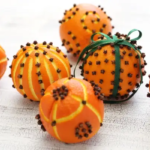
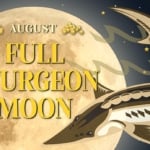


Ugh, the Christmas Pickle. I am from Germany, but live in the USA. Every year, someone asks me about the annoying Christmas Pickle. It is NOT German! Nobody in my family, nor any of my friends have ever heard of it!!! Don’t believe everything you see/read in the Christmas store LOL 🙀
I have a beautiful Christopher Radko (one of a kind) Christmas Pickle! I’ve had since the 80s. My pickle promises Health, Wealth and Adventures in Life. Seems to work in my family. I love traditional rituals. Your pickle can be whatever you want it to be! You could even change it every year. The person finding it would have to wait until whatever you annouce it to be that year. You get to chose. ie wash the dinner dishes for the holiday or not have to help with the holiday dishes…it’s a cool little pickle!! And Merry Christmas, Happy Hanukkah, or whatever you do to celebrate this very Holy Holiday!!! and Happy New Year!!
Sorry, but this is not a German tradition, past or present. I live in Germany and we believe someone in America decades ago wanted to earn money and the myth/trend took off.
We simply do not put smelly food in our Weihnachtsbäume.
Stop it. Thanks! ?
Hi Nopickles, we clearly state in the article: “but few Germans have ever heard of this ornament having any special place or traditions associated with it. It is likely that the “tradition” was a clever invention by an enterprising salesman with the hopes that a charming tale would lead to more sales of these unusual ornaments.”
Hi and thanks for your reply. I read the article and saw that, too. My comment was aimed at people in general who actually beleive this stuff l and not necessarily aimed at the writer / article.
There’s quite a few cultural myths out there about us, such as ‘German chocolate cake’, for example. It doesn’t exist here either as we have just chocolate cake like everyone else. We also have speed limits on the autobahn. We also don’t burp during meals if the food is good. Those are just a few examples.
I hope that clears it up.
Thanks for your reply again.
Auf Wiedersehen!
Thanks for your comment!
Do you think you’ll be writing a book about pickles soon?
Great article, and thanks for the info. A cousin (ex in law) gifted me a pickle ornament years ago, along with the story that the first to find it gets a special treat/gift. It means a lot to me.
Good article and now I want a pickle for my tree!
My grandmother is of German origin and my two grandchildren have always enjoyed the search for the Christmas pickle on my christmas tree to get a special treat. I’m hoping that at least one of them carries on the tradition.
Melissa’s picture reminds me of John Lennon. OK, I admit that’s weird.
The story was interesting. I had never heard of this before
My Mom was from Germany and had never heard of the Christmas Pickle until we went to a Christkindle Market where the pickles (tin) were being sold.
I have a collection of pickle ornaments – because I collect glass fruit and vegetable ornaments. Great info on the tradition! Really enjoyed the video also! Thanks, Melissa!